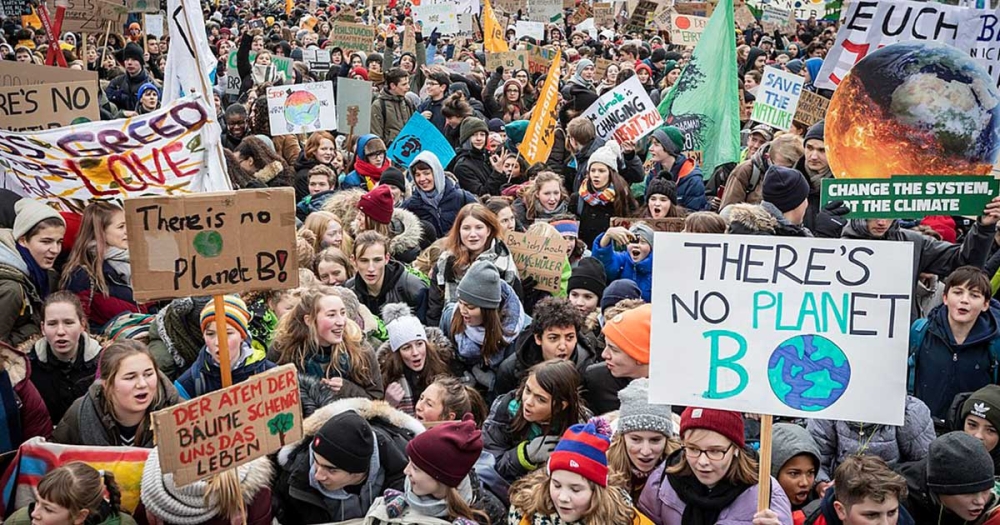Just when you think you’ve seen everything, Politico comes along and – in the year 2023 – compares the current German government coalition of social democrats, liberals and greens to Nazism.
“Germany’s e-fuel fetish ain’t new. Just ask the Führer,” was the headline for an opinion piece posted by the liberal Belgian web portal Politico. The background to all this is the fact that, under German leadership, the Central European bloc has succeeded not only in having battery-powered vehicles declared climate neutral, but also, for example, synthetic fuel, as long as certain objective conditions are met.
In recent years, we have grown accustomed to those who deviate from mainstream ‘dark green’ ideology finding themselves under attack from the progressive press. This is true no matter whether the issue at hand is the inescapability of nuclear energy, the drawbacks inherent in producing renewable energy, the justifications for carbon sequestration technologies, or, more recently, mentions of alternatives to battery-powered cars. Yes, while the government in Hungary is being forced to fend off attacks from progressives for advocating the construction of a battery factory, Germany is being denounced for having the temerity to think of solutions other than batteries. It’s a case of being ‘damned if you do, and damned if you don’t’. For a long time now, the goal has not been to achieve climate neutrality, and perhaps it never was. The point is to establish progressive ideology as the dogma to define a new religion.
Politico’s article soars to the lofty intellectual heights where the Luftwaffe and German Panzer divisions find themselves on a parallel plane with contemporary passenger vehicle production, one that leads us off into infinity. The article traces the concept of synthetic fuel back to the collective consciousness left over from the Nazi era, when the Third Reich’s blitzkrieg strategy relied on imported fuels. Among other commentators, the Climate Policy Institute has already discussed the production of synthetic fuel from a mixture of carbon dioxide extracted from the air and hydrogen created from the hydrolysis of water, finding that, as with battery technology, the picture in terms of sustainability is a mixed one. In spite of this, the question of synthetic fuels is typically an area where the conservative approach (rescuing the internal combustion engine industry, one that spans generations) and liberal thinking (that the market, operating within a regulatory framework, should choose the most competitive technology) might both lead politicians to shy away from taking a firm position. No matter how hard the author of the article attempts to make us believe otherwise, the argument that the possibility of using synthetic fuel should be rejected because Hitler grew disenchanted with it is not a convincing one.
According to Michael Steiner, the head of Porsche’s research and development division, “the potential inherent in e-fuels is enormous.” As for why, according to the article, this statement should be of little interest because the company was founded by Ferdinand Porsche, to whom we owe the Volkswagen Beetle among other things, but whose work also found an ardent admirer in Adolf Hitler himself. The article could have mentioned that synthetic fuel would not necessarily eliminate urban air pollution, or that hydrogen and methanol can be used as fuel on their own so it does not necessarily make sense to connect further carbon chains. However, we read about none of this. Most likely because the writer of the article knows nothing of such matters. Instead, the piece dissects how the enthusiastic champion of synthetic fuel within the German government is the country’s finance minister, Christian Lindner, who, in addition to his love of Porsches, manages the country’s finances from Hermann Göring’s former war room. Touché!
It is quite the challenge to counter such arguments. European decision-makers have set the goal of achieving climate neutrality in less than three decades. On top of this, the previously drawn up energy timelines of the individual countries have been disrupted by the war between Russia and Ukraine. On the one hand, the conflict has also yielded some positive outcomes, such as the renaissance of nuclear technology in Europe.
On the other, the technological prerequisites for the enforced greening of Europe as formulated are not yet in sight. While we could irresponsibly declare that we still have decades remaining before the deadline and will solve the various challenges by then somehow, the impact of any decision involving the energy sector only appears years, or even decades, after it is made. If we don’t want Europe to be even more at the mercy of others than it is at present, we must restrict ourselves to thinking only about those solutions that are already tangible and can be built on today. Those that already exist today and only require fine-tuning. We cannot entrust our fate to wishful thinking. Battery technology boasts numerous advantages. For example, it is eminently suitable for city driving.
However, the raw materials required for production are not available in sufficient quantities on the continent, which is why many analysts are talking about the green transition resulting in the emergence of a new dependence on China. Political posturing should yield to the expertise of engineers and developers. If we allow it to, market forces are what will ultimately decide whether synthetic fuel, fuel cells, battery technology, or all of them in combination will be the solution to the green transition.



